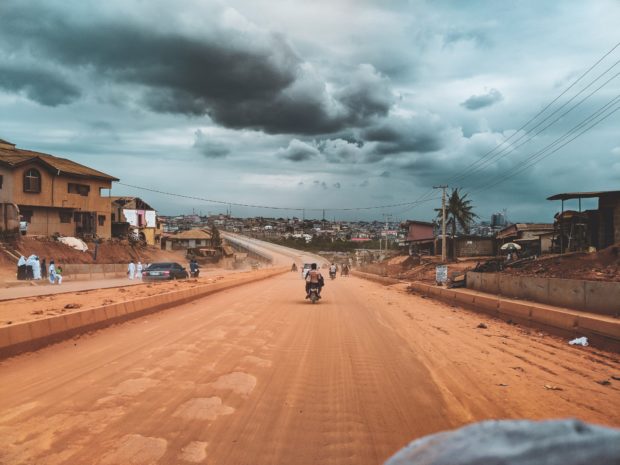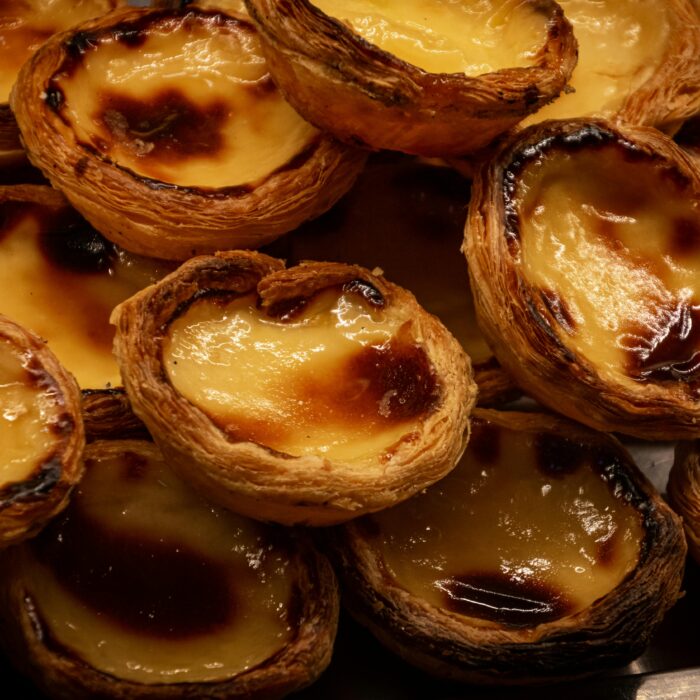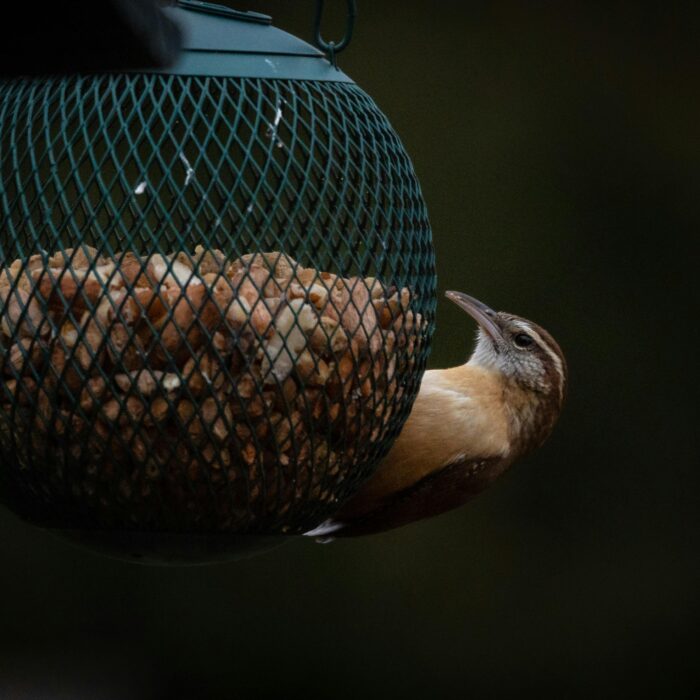You have no items in your cart. Want to get some nice things?
Go shopping
Once, I sat on a sidewalk in the dark, overwhelmed with the fatigue and sadness that seeped from it. I held my head in my hands, willing myself to not cry; trying to still myself against the fullness and force of the tides. A man drew towards me like a cloud, and asked uncertainly, “Are you alright?” I did not respond, because I knew my voice would fail me. So he sat next to me, silent, just offering me his presence as a wall around this weakness. He sat with me until the tides passed. It could have been a minute, it could have been twenty minutes, it could have been an hour. But he sat with me until the tides passed, and I collected my face from my hands, turned to him and said thank you. And then he left.
When I think back to my time in Kano, it is this memory that collects me, the way a mother who has spanked her child might receive him back as he’s crying, to say sorry.
In that city, I was introduced to the kindness of strangers. In that city, I was introduced to the length and breadth of darkness and its teeth. This was a city that saw me, that really saw me. Humans tend to drift towards elements or people that see them, because to be seen is to be deeply validated. But I hated this city because it saw me. And perhaps it is why I have always rejected the idea that perhaps I had built a home out of it.
Once, during a period of darkness, when my anxieties grew severe and now came with unconquerable nausea and zero tolerance for human touch, I sat shaking on my bed, my body moving to the rhythm (or lack of) of my thoughts, my heart racing so hard and fast I was sure it’d burst out of my chest. I cried because my body felt too small to contain the electric currents ripping through it at such a pace, but I cried too because this was happening in a city that was not mine.
Back home in Minna, I had these attacks, but never this severe. And perhaps this added to my pile of reasons why Kano could never be home.
I have always been drawn to the idea of home as safety, as where love lives. I have heard people talk about home as a feeling in time and not a physical place. And I have held many times too, that as humans, it is impossible to exist beyond geography. And so it is impossible to feel outside of places. And so home would be a combination of places and feelings. Sometimes, the product of this is humans. Sometimes not.
For years, all I wanted was to leave that city for good, but when the day drew near, it wasn’t relief that filled me, but a slow crippling sadness and restlessness, and for the first time I had to confront the possibility that perhaps home was mobile after all, that perhaps I had really built a home out of Kano.
Kano with the scalding sun in June, and the brutal cold in December. Kano with the kind, kind strangers and the offer of privacy and solitude. Kano with the Ruka, with the Farida, and Joseph, Kano with the Ridwan and AY; friends who had turned family.
One night after we were done studying in school for the exam we were going to take the next morning, and my friends who stayed on campus proceeded to their hostel, myself and the two others who stayed around the same area proceeded outside school. We started to talk about postcolonial theory and Chimamanda Adichie’s comments on it. From there, we segued into other matters; Chinua Achebe and his magnificent Things Fall Apart, Wole Soyinka and his role in trying to avert the Biafran war, writing (even though I was the only writer in the cohort), religion, and the fragility of faith. And somewhere in that night, as we slipped in and out of each other through our words, as we laughed at a thing and then frowned at another, as we walked deeper and deeper into the cold, silent distance, it occurred to me that this, right here, was the kind of community I had hoped and even prayed to find when I first came to Kano five years ago. And yet here I was, finding it when we had only two days left together.
*
On my first day in school back in 2014, I sat on a concrete slab along with a few other girls because our classroom hadn’t been opened yet. We had been there for quite a while and it did not look like the class would be opened anytime soon, and so I started to consider going to the library. A chubby, dark-skinned girl came towards me. She wanted to know where the library was. I told her I was heading there. We went together, introducing ourselves to each other and making small, light talk. When we sat at a table in the library, I noticed her hands: the nails were painted black. It was those hands that held me, five years later, when I fell sick on the eve of our finals exam day. They were still painted black.
We became friends: the sort who signed attendance for each other before asking why they didn’t show up for class; the sort who took long night walks and made up secret nicknames for people they didn’t like, names like serving spoon, because the girl in question simply had a head whose shape truly bore a striking resemblance with a serving spoon; the sort who argued and argued and argued; the sort who spent short holidays with the other’s family.
Throughout the course of my degree, I shed and wore, and shed again and wore again, different layers of myself. I grew. And though I like to talk about this in a negative light in relation to Kano, I realize now that that is actually what growth means. Growth is an ugly process. I conflated it with Kano. Perhaps because I needed something to blame.
The night before I leave that city for good, I go to the school hostel to see my closest friends. I lie in Farida’s room for quite a while. The room, quiet, and cold from the infant harmattan. I am on my phone and she’s buried deep under her blanket. The door is locked but I can hear the noise from the rest of the hostel; girls teasing and screaming at each other, some laughing in that way that stops time, others singing offkey. The world as I know it right now in this moment, will end when I step out of this room, because it will be for the last time. And so even though it’s getting dark, and I’m not doing anything here, and I should get going, I am still here, because I want to hold this moment for a little longer before it becomes a memory.
*
The answer to my questions about home came to me one kind morning in Minna. I woke up bright and aware of it. It was one of those mornings that could pass for a feeling.
I had a few errands to run that day, and one involved delivering a letter to the Police Headquarters. I did not know where it was located, so I asked my sister who seems to be a map because of her vast knowledge of places. She carries places with her the way one does a thing beloved. She paused, her chin between two of her fingers, seeming to scout for the easiest way to describe it to me. Finally, she started to explain. She tried and failed to give me the directions. She said, “You know what, ask Y to drop you off.” Y was our cousin who was in fact only a few months old in Minna. “He literally doesn’t know anywhere in this town other than here,” I said. “That’s true,” she agreed, then tried again to describe it. Exasperated, she said, “If you get lost on the way, just come back home. At least, wherever it is you are, you’ll always know the road that leads back home.”
I laughed hard for close to a minute, and then it struck me:
Home is that place you return to whenever you are lost, home is the road that never leaves your consciousness.

Hauwa Shaffii Nuhu
Hauwa Shaffii Nuhu is a poet and essayist from Nigeria whose work has appeared on Popula, Ake Review, The Republic, After the Pause journal, 20.35 Africa and elsewhere. She's a 2018 fellow of Ebedi Writers Residency. She holds a law degree and is currently pursuing a BL at the Nigerian law school.




